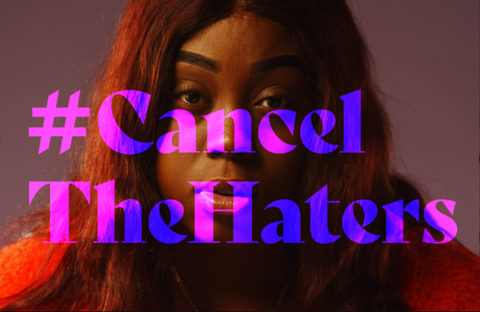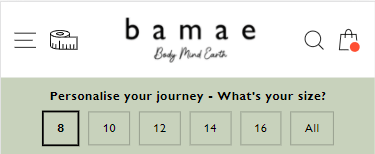As a society, we have fought for gender equality for decades, yet misogyny and sexual assault are still very prevalent issues for many women, even in the 21st century. Despite technological advancements, the clocks are turned back by sexualised comments, gender slurs and physical threats both online and offline. Social media has become a new medium for anonymous users to target anyone with hateful comments and physical threats. Due to the global pandemic, many of us have adapted our lifestyles to socially interact and conduct business virtually. Technology has proven to be beneficial during this challenging time; however, the increase in time spent online has also led to an increase in online abuse and sexual assault cases.
45% of women experiencing sexual harassment, reported experiencing the harassment remotely and 72% of women experiencing sexual harassment at work do not feel their employer is doing enough to protect or support them from this abuse. The majority of offences take place on Zoom and popular social media platforms such as Facebook, Instagram, WhatsApp and Snapchat. Social media, at a fundamental level, allows us to connect and communicate virtually; however, these platforms also expose us to violence and harassment. What can be done to combat this underlying threat we are exposed to every time we scroll through our phones?
Marianna Spring on the online sexual abuse targeted at women

For a lot of female users, we no longer feel safe using this ominous online space. The BBC’s specialist disinformation reporter, Marianna Spring has highlighted her personal experience with sexual harassment in the media: “The trigger? My coverage of the impact of online conspiracies and fake news. I expect to be challenged and criticised - but misogynistic hate directed at me has become a very regular occurrence”. With taking a position in the public eye, Spring has been subject to an influx of misogynistic comments with references to rape and murder. From experiencing online abuse first hand, Spring investigated the extent that abuse has infiltrated our online space and personal accounts.
The BBC’s Panorama series, Online Abuse: Why Do You Hate Me? aims to educate its viewers on the sexual harassment experienced by women in the media. Spring set up a fake troll account, under the pseudonym ‘Barry’, and used this account to engage with conspiracy theories and anti-women content. As a result, Barry was recommended misogynistic posts condoning sexual violence and more extreme ideologies such as the ‘incel’ movement. “If it were a real person, [Barry] would have been brought into a hateful community full of misogynistic content very, very quickly - within two weeks," says social media expert, Chloe Colliver, who advised on the experiment. It is disturbing to see how much hateful content and anti-women accounts still exist on social media sites. However, what Spring found surprising was that despite Barry’s interest in conspiracy theories, the majority of recommended content was based on archaic sexism towards women.
Public figures, politicians and reality TV stars have spoken up about the sexual harassment they have received. 2021 Love Island contestant, Kaz Kamwi opened up about her experience with receiving regular online abuse and the upsetting consequences of this. "I am a dark-skinned Black woman, like that's the first thing that you can see, and I think to be attacked on that, it's so hurtful and so harmful, and the fact that my family was exposed to that, it breaks my heart." The Instagram influencer has been subject to both misogyny and racism during her time on the show. Her family even felt inclined to address the issue on social media by posting, “we understand that a lot of you love watching the show and that people will have differing opinions. However, this does not excuse the vulgar racist abuse we have been receiving on her account! Please remember to always #bekind”. Another Love Island contestant, Priya Golpados, said she was expecting the cyber abuse and tried to prepare her family for the backlash. This issue has now escalated to a point where people in the public eye now expect online harassment. The deaths of Sophie Gradon, Mike
Thalassitis and Caroline Flack from Love Island alone show the tragic effects of online abuse on mental health. We would not tolerate threats to our safety in the workplace, so why should this be tolerated online?
Online abuse becoming offline abuse

Panorama has obtained data from several police forces over the past five years through the Freedom of Information and discovered that the number of people reporting online abuse has more than doubled; however, there was only a 32% increase in the number of arrests and the victims were predominantly women. The slow response and lack of prioritisation of these cases result in emotional distress on the victim and a severe threat to their physical safety. We only have to consider the attacks on Sarah Everard and Sabina Nessa, who were a few cases in a vast number of victims, to understand the severity of sexual harassment and misogyny that exists in society. Yet, we are still not seeing these complaints of sexual abuse online and offline taken more seriously.
There seems to also be a trend in the type of abuse experienced by men and women online. NHS doctor, Rachel Clarke identifies that there is a distinction between the hate received by male and female doctors. For women, the abuse was gender-specific, using derogatory terms and sexist insults. Whereas for men, the abusive comments contained less gendered stereotypes. Women should not feel bullied out of the public sphere by online sexual harassment.
How can this be combatted? What can society do to take this issue more seriously?
Research from the Centre for Countering Digital Hate for Panorama revealed that “97% of 330 accounts sending misogynistic abuse on Twitter and Instagram remained on the site after being reported”. This shows that the issue runs deeper than the anonymous anti-women accounts. Tech Giants such as Instagram, Facebook, Twitter and YouTube should be held accountable for their promotion of discriminative content and their delayed reaction to closing the sites that supply it. Social media platforms have rules in place to protect users from abuse such as suspending, restricting and shutting down sites; however, as this evidence shows, they are not doing enough to combat cyber harassment.
Government efforts to combat hostile online content are the Online Safety Bill. The draft, published on the 17th May this year, set out aims to protect users from harmful content on the internet such as child sexual exploitation, disinformation, terrorism, racist abuse and pornography. This gives power to the UK’s communications regulator, Ofcom, to enforce fines of up to £18 million or 10% of global turnover if the company fails to comply with the new safety rules. Read more about what this bill means for our online safety.
How can we respect free speech and protect online users from abuse?

The enforcement of the Online Safety Bill is the online protection many have been in anticipation for. However, there is tension between the measures needed to tackle online abuse and the consequences this may have on freedom of expression. There needs to be a balance between respecting the right to express opinions and fighting online abuse without creating digital authoritarianism. Harriet Moynihan, the Acting Director of the International Law Programme identifies, “the root of the problem is not the content but a business model in which platforms’ revenue from advertising is directly linked to engagement”. The ‘recommender’ algorithms target users based on behaviour and artificially amplify hostile content. This provokes an emotional response and controversy to increase engagement with the post, which then means more profit for
large companies. However, profit from artificial amplification of hate comes at the user’s safety. Solutions to combat online hate are needed to protect people from abusive online content.
Despite the division of the Online Safety Bill, efforts must be made to tackle tech abuse. We need solutions to make social media a safe space for all users without the violent threat of harassment and discrimination.
If you are experiencing online abuse, find out what support is available for you here.
Further Reading (Sources)
https://www.bbc.co.uk/iplayer/episode/m0010s0w/panorama-online-abuse-why-do-you-hate-me
https://www.bbc.co.uk/news/uk-58924168
https://www.chathamhouse.org/2021/07/new-uk-bill-can-fight-fresh-wave-online-racist-abuse
https://www.bbc.co.uk/news/technology-57071977
https://freedomhouse.org/report/freedom-net/2020/pandemics-digital-shadow





